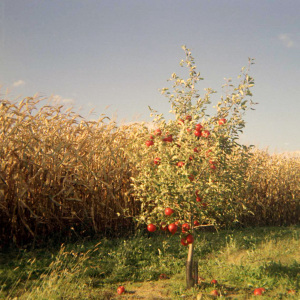I read on some crunchy, loosely tied to science, blog that our bodies function in a way that craves the things which continue us on our current state. (Defense: I googled homeostasis and the definition that came up validated these claims. Those crunchy, loosely-tied-to-science people are on to something.)
For example, if you’ve indulged in a BK Chicken Sandwich for dinner a few nights in a row, then whatever the greasy pretend-chicken does to our internal organs, our bodies respond with, “okay, to get more of this, I need more greasy pretend-chicken.” (Full disclosure: the BK Chicken Sandwich was my go-to indulgence when I was pregnant. When everything sounded yucky, the BKCS made my mouth water. It’s my favorite grossest thing ever.)
This rule would help explain the 2-beer rule. Someone once told me that his options were either to stop at 2 beers or give in to the fact that he would be drinking all night. Self-control after 2 beers diminished, and I contribute this to the above mentioned Homeostasis Rule. Your drunken body continues to crave more of what has made it drunken.
Looking at the world through this lens explains my weird sister when she says “I crave a salad” because she’s uncontrollably healthy. Her body is functioning in a state that craves things like nutrients from fresh, raw vegetables. Also, those of us who crave bread-y carbs probably have the least amount of self control after eating one or two rolls.
In Rob & Kristen Bell’s new book, The ZimZum of Love, they make the point that the energy between two married people (or any people, really) operates in much the same fashion. If love and goodwill is happening, the relationship continues to grow in love and goodwill. If frustration, anxiety and contempt is circulating, than it breeds that downward spiral.
Perhaps our bodies, minds and spirits (and even organizations) operate much in the same way: we crave more of our current state, even when we don’t actually want our current state to continue.
<<Insert comment about over-tired toddlers that can’t get to sleep 2 hours after bedtime.>>

Image by m. a. r. c. used with permission via CC.
To make a grand, sweeping generalization, most people want change or want to change. We want something different. We want to lose 10 pounds, be a better friend, have a closer connection with our spouse, be more present with our children and have more time for causes that hold significant meaning in our lives. We want these things. Wanting change is the problem for only a small population of people. (Side note: in my opinion, if we granted those with addictions this kind of perspective, we would be practicing a bit more of Jesus’ idea of grace, attributing the problem less to character and more to our human nature.)
The problem isn’t wanting change. The challenge comes in when we have to start doing the things that would lead to change. We have to get out a skillet and cook instead of another BK Chicken Sandwich. We have to leave the bar instead of getting a 3rd beer. We have to compliment our partner on something we truly value about him, instead of nagging them about the trash he left on the counter. Some of these things are very hard to do in practice.
Our nature craves consistency even when our hearts crave change.
Perhaps acknowledging this homeostasis vortex will give us the courage to start. And if the theory is correct, our victories will lead to greater victories later on. Not without a few stumbles and failures, we should note. But getting out of our Homeostasis craving cyclone is a change in trajectory, built upon small victories over time.
